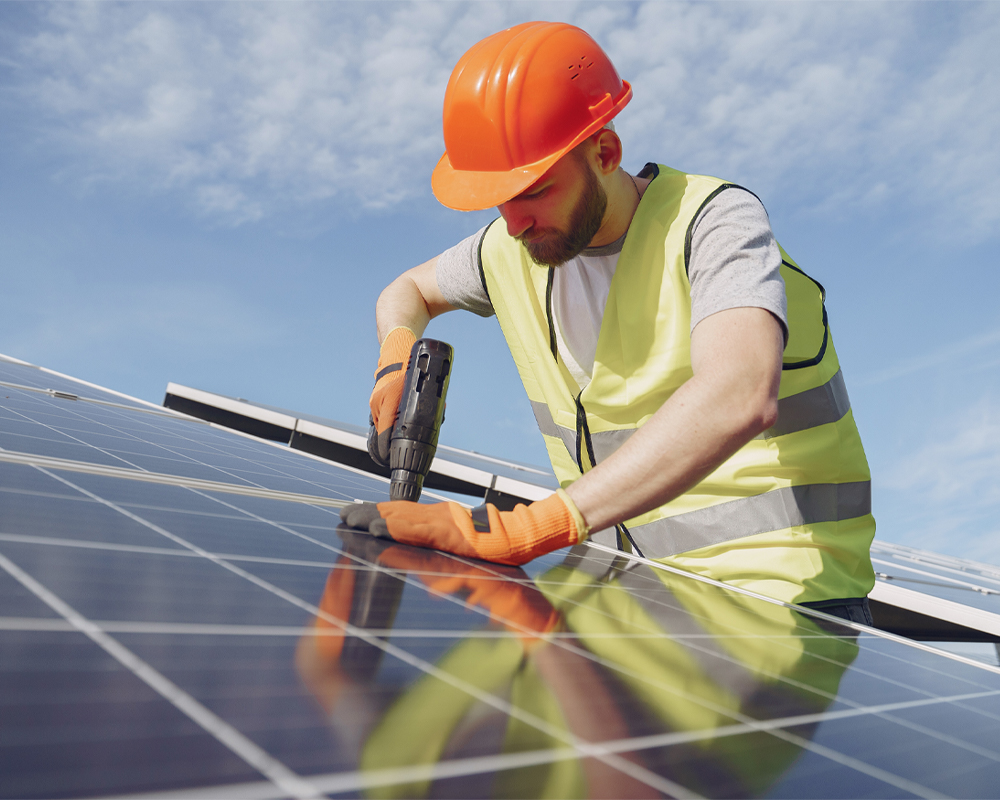First-time buying solar? This guide answers the most common installation questions in simple terms to help you make a confident, informed decision.

Thinking of going solar for the first time? You're not alone. In fact,more than 3 million solar systems have been installed across the U.S., and thenumber keeps rising. But if you’re new to the process, it’s natural to have questions. Here's a breakdown of the most common things first-time solar buyer sask—answered in plain language.
1. How Do Solar Panels Actually Work?
Solar panels absorb sunlight and convert it into electricity using photovoltaic (PV) cells. This electricity powers your building or home. Any excess energy is usually sent back to the grid, which may reduce your utility bills through net metering, depending on your state’s rules.
2. How Much Does Solar Installation Cost?
The price depends on system size, location, and type of equipment. On average, a residential system can range from $15,000 to $25,000 before tax credits. There are federal and sometimes state incentives that can reduce that number significantly. The cost for businesses solar installation in Pitkin varies depending on commercial needs, but the long-term energy savings often outweigh the up front investment.
3. How Long Do Solar Panels Last?
Most solar panels come with a 25–30 year warranty. However, they can continue to produce electricity well beyond that time. The energy output slowly declines, but many systems still work efficiently for 35–40 years with regular maintenance.
4.What Maintenance Do Solar Panels Need?
Solar panels need very little up keep. Cleaning them a couple of times a year can help maximize efficiency, especially in dusty or snowy regions. Also, periodic inspections can catch small issues before they become big repairs.
5.What’s the Payback Period?
This is a big question for most first-time buyers. The average payback time is around 6 to 10 years. After that, your solar panels start generating free electricity. If your system offsets your full electric bill, the savings stack up fast.
6. Can Solar Work During Winter or Cloudy Days?
Yes, solar panels still generate electricity even on cloudy days.They’re less effective than on sunny days, but not useless. Snow can temporarily block panels, but it usually melts off quickly because of the dark surface and tilted angle.
7. Is My Roof Suitable for Solar?
Solar works best on roofs with good sun exposure, minimal shading, and enough space. South-facing roofs are ideal in the U.S., but east- and west-facing ones can also work. Your installer will assess this before installation.
8. How Long Does It Take to Install a Solar System?
After permits and approvals, the physical installation only takes 1 to 3 days. However, the entire process—including site inspection, paperwork, and connection to the grid—may take several weeks.
9.Will Solar Increase My Property Value?
In most cases, yes. Studies from the U.S. Department of Energy suggest homes with solar panels sell faster and at higher prices. Buyers are attracted to the idea of reduced energy bills and environmental benefits.
10.Who Should I Hire for Installation?
Choosing a trusted installer is key. Make sure they are licensed, experienced, and offer solid warranties. If you’re looking for the best solar installer in Glenwood Springs or neighborhood areas, check customer reviews, ask for local references, and compare quotes before signing.
Let SoL Energy Take It From Here
Still sorting through solar questions? That’s normal—and exactly where SoL Energy shines. Based in Western Colorado, their team has been in the solar game since 1999. They’re not just experienced—they’re approachable, knowledgeable, and always focused on what works best for you.
From that first chat to flipping the switch, SoL Energy makes the process simple, stress-free, and smart. Whether it’s a small home setup or a full business solar installation in Pitkin and beyond, they’re the people locals trust.
When you're ready to go solar, go with a team that’s built its reputation on results.
FAQs
1. What incentives are available for going solarin Colorado?
Home owners and businesses in Colorado may qualify for the federal solar taxcredit (ITC), which can cover up to 30% of installation costs. Some local utility providers also offer rebates or performance-based incentives. SoL Energy can help you navigate all available solar programs in your area.
2. Can I add battery storage to my solar system later?
Yes! Many solar systems are battery-ready,meaning you can install energy storage now or later. Adding a battery allows you to store excess power for night time use or during outages—especially helpful in remote areas of Pitkin County or Glenwood Springs.
3. Will I still get an electric bill after going solar?
If your solar system is designed to offset 100% of your usage, your electric bill can be nearly eliminated. However, some utility fees may remain. Net metering policies in your area will also affect how credits and energy usage are balanced.
4. How do I know if solar is right for my home?
A solar site assessment checks your roof angle, sun exposure, shade, and energy usage. SoL Energy provides free solar design consultations in Pitkin County, helping you determine if your home or business is a good candidate.
5. What permits are required for solar installation?
Solar projects typically require electrical, structural,and zoning permits. Don’t worry—SoL Energy handles all paperwork and approvals for you, ensuring the project stays on track and within regulations.